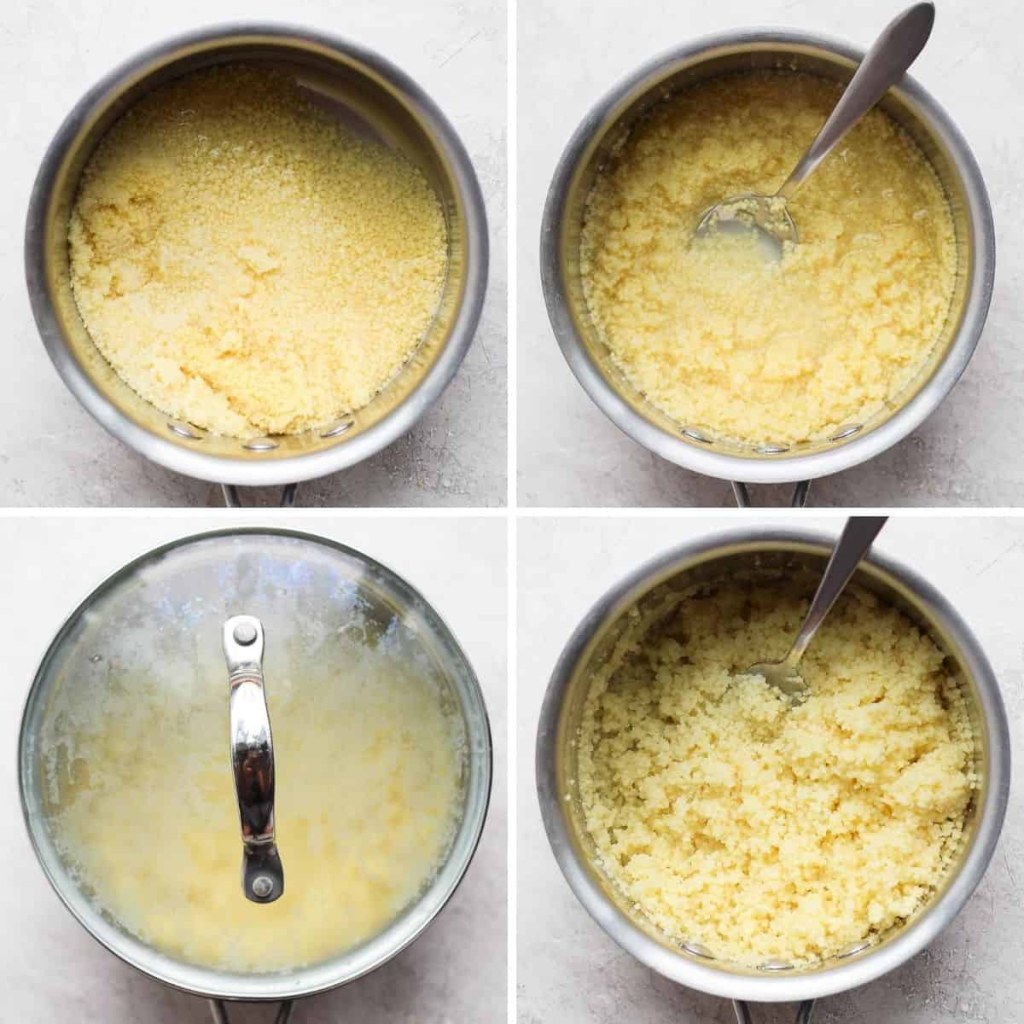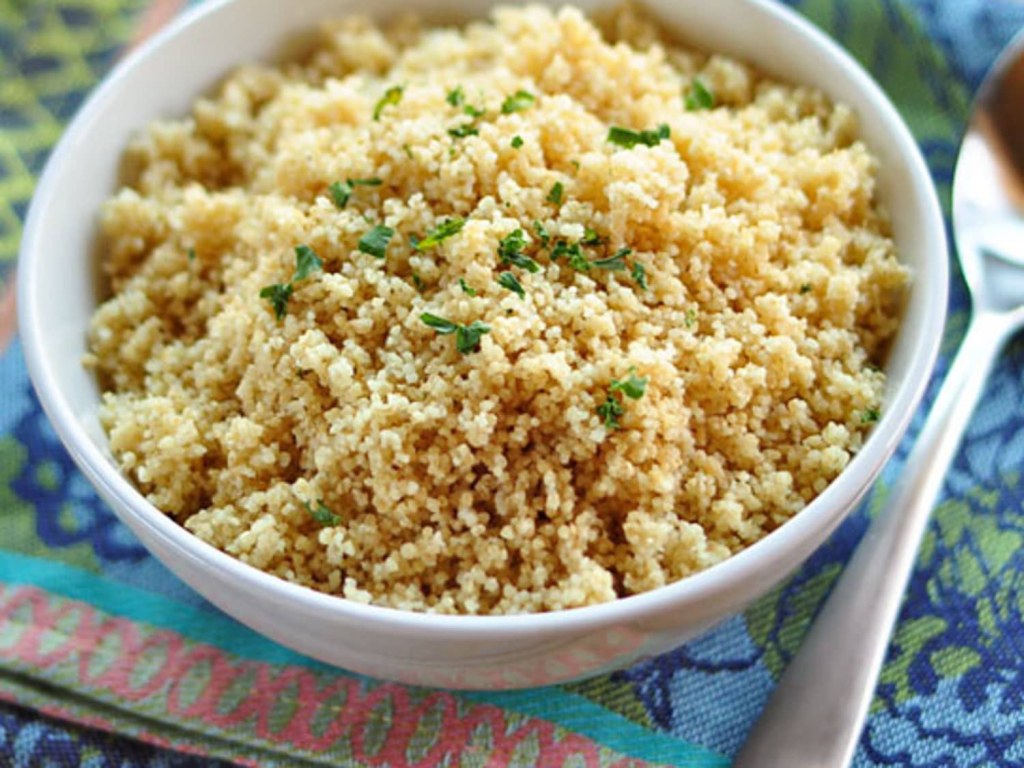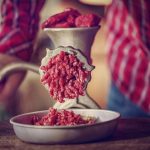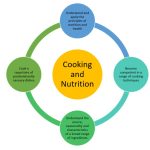The Ultimate Guide To Mastering The Cooking Techniques Of Couscous: Unleash Your Culinary Creativity Now!
Cooking Techniques of Couscous: The Art of Perfecting this Traditional Dish
Greetings, Readers!
Welcome to our guide on the cooking techniques of couscous. In this article, we will explore the various methods and secrets to prepare this beloved North African dish to perfection. Whether you are a seasoned chef or an adventurous home cook, mastering the art of cooking couscous will undoubtedly elevate your culinary skills. So, let’s dive into the world of couscous and discover the secrets behind its deliciousness.
2 Picture Gallery: The Ultimate Guide To Mastering The Cooking Techniques Of Couscous: Unleash Your Culinary Creativity Now!


Introduction
Couscous, a staple grain dish in North African cuisine, has gained popularity worldwide for its versatility and delightful taste. It is made from semolina wheat and provides a perfect base for various flavors and ingredients. While it may seem simple, there are several cooking techniques that can enhance the texture and taste of couscous. In this guide, we will explore these techniques and help you become a couscous connoisseur.
1. What is Couscous?

Image Source: feelgoodfoodie.net
💬 Couscous is a traditional North African dish made from semolina wheat. It consists of small granules that are steamed to perfection, resulting in a light and fluffy texture.
2. Who Can Cook Couscous?
👨🏻🍳 Cooking couscous is not limited to any specific group of people. Anyone with a passion for food and a desire to explore different cuisines can try their hand at preparing this delicious dish.
3. When is Couscous Typically Served?

Image Source: apartmenttherapy.info
📅 Couscous can be enjoyed at any time of the year. However, it is often served during festive occasions, family gatherings, and special celebrations in North African cultures.
4. Where Did Couscous Originate?
🌍 Couscous has its roots in the North African region, specifically in countries such as Morocco, Algeria, Tunisia, and Libya. Over time, it has become popular in various parts of the world, thanks to its delicious flavors and adaptability.
5. Why Should You Try Cooking Couscous?
🍝 Cooking couscous not only allows you to explore different flavors and cuisines but also provides a wholesome and nutritious meal. It is a great source of carbohydrates, fiber, and essential nutrients.
6. How Do You Cook Couscous?
📚 Cooking couscous involves several techniques, including steaming, boiling, and soaking. Each method has its own unique advantages and contributes to the overall taste and texture of the dish.
Advantages and Disadvantages of Cooking Couscous
1. Advantages of Cooking Couscous:
💪 Quick and Easy: Couscous is incredibly easy to prepare and cooks in a fraction of the time compared to other grains.
🍗 Versatility: Couscous can be paired with a wide range of ingredients, making it suitable for various styles of cuisine and dietary preferences.
🍌 Nutritional Benefits: It is a good source of B vitamins, minerals, and fiber, contributing to a healthy and balanced diet.
2. Disadvantages of Cooking Couscous:
🚫 Gluten Sensitivity: Couscous is made from wheat, making it unsuitable for individuals with gluten sensitivity or celiac disease.
🌭 High Glycemic Index: Couscous has a high glycemic index, which may cause a rapid spike in blood sugar levels for some individuals.
Frequently Asked Questions (FAQ)
1. Is couscous gluten-free?
❓ No, couscous is not gluten-free as it is made from semolina wheat.
2. Can I substitute couscous with another grain?
❓ Yes, you can substitute couscous with alternative grains such as quinoa or rice to suit your dietary needs.
3. What are some popular couscous recipes?
❓ There are several popular couscous recipes, including Moroccan vegetable couscous, Tunisian couscous with lamb, and Algerian spicy chicken couscous.
4. Can I make couscous in advance and reheat it?
❓ Yes, couscous can be made in advance and reheated. However, ensure you store it properly to maintain its texture and flavor.
5. Is couscous suitable for vegetarians and vegans?
❓ Yes, couscous is suitable for vegetarians and vegans. It serves as an excellent base for various vegetarian and vegan dishes.
Conclusion
In conclusion, mastering the cooking techniques of couscous opens up a world of flavors and culinary exploration. Whether you prefer traditional North African recipes or innovative twists, couscous provides a versatile canvas for your culinary creations. So, gather your ingredients, unleash your creativity, and embark on a delicious couscous journey!
Remember, practice makes perfect, so don’t be discouraged if your first attempt doesn’t turn out as expected. With time and experience, you’ll develop your own unique style and techniques to create mouthwatering couscous dishes. Enjoy the process and bon appétit!
Disclaimer: The information provided in this article is for educational purposes only. Please consult a professional chef or nutritionist for personalized advice and guidance.
This post topic: Cooking Techniques

